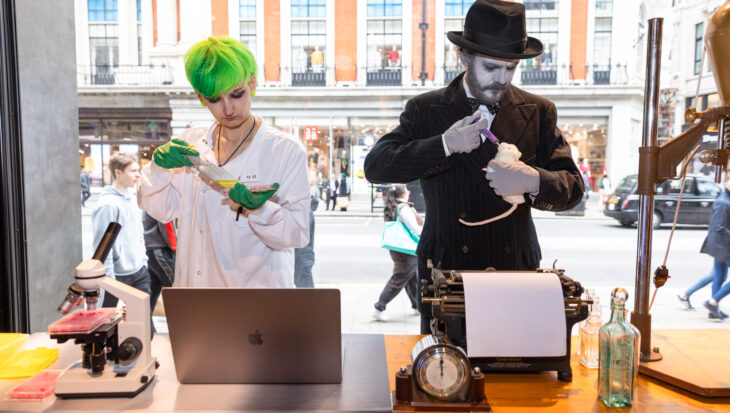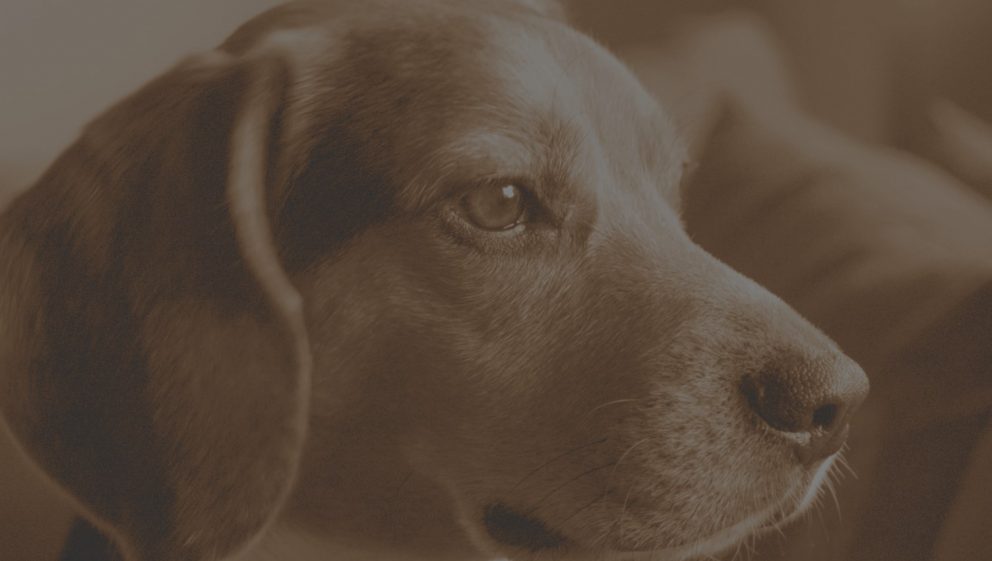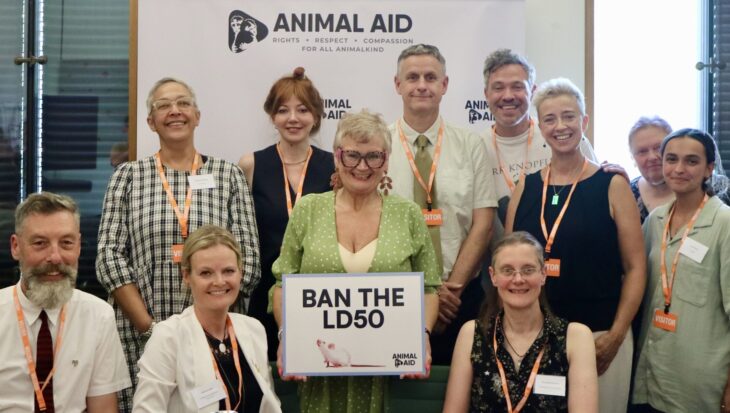The silence has made the national campaign group all the more determined to bring an end to the often lethal experiments. It brands them ‘disgusting and the last thing expected of a veterinary college that should be focused on healing, not harming animals.’
Support for Animal Aid’s campaign has been voiced by parliamentarians from across the political spectrum, veterinary surgeons and notable animal welfare advocates Brian May, Joanna Lumley and Peter Egan.
The new phase in Animal Aid’s RVC campaign includes the launch of a website featuring relevant information on the roughly 9,000 procedures now being conducted annually by College researchers. Site visitors will be able to see details of the species used, the numbers involved and what is done to them. The website also offers a direct link to the RVC’s Principal, thereby enabling the public to voice their opposition to the research programme. Five thousand members of the public have already taken this action. A satirical cartoon postcard, specially commissioned by Animal Aid, features a veterinary surgeon, looming over crates containing terrified animals, with only their frightened eyes visible. He is telling them ‘Trust Me, I’m a vet’. The card is downloadable, free of charge.
Animal Aid’s Director, Andrew Tyler, has challenged an RVC Professor, who both conducts and publicly promotes animal research, to debate the ethics of vets’ involvement in such activities. Despite several e-mails and telephone messages, no response has been received.
Says Animal Aid’s Jessamy Korotoga, Anti-Vivisection Campaign Manager:
‘If an organisation is conducting animal research, then it should be willing to defend that practice in public, on both ethical and scientific grounds. The lack of engagement is doubly disappointing, given that the RVC is a signatory to the Concordat on openness on Animal Research. A key commitment of which is to “enhance our communications with the media and the public about our research using animals”.’
In January, Animal Aid brought to light details of several experiments conducted by RVC researchers. Published scientific papers described the surgical mutilation of sheep and the dosing of dogs with a compound known to induce sickness. We also described experiments, due to take place this year, that involve the insertion of laboratory-manufactured genetic material into beagle-cross dogs who have been bred by the RVC with a harmful mutation giving rise to a canine version of Duchenne Muscular Dystrophy This leads to the dogs being killed when aged 18 months, in order, says the RVC team, to minimise their suffering.
An RVC statement asserts: ‘The goal of all the research at the RVC is to generate new knowledge to aid diagnosis and treatment of animals and/or humans’. However, even the College’s most enthusiastic apologist would have difficulty justifying an experiment, uncovered by Animal Aid, which involved the torment of guinea fowl. The birds were anaesthetised, had eight electrodes inserted into the muscles in one leg and, after they had regained consciousness, were made to run on a treadmill and to negotiate obstacles at different speeds and presenting varying visual formats. There was no mention in the paper of how this research would benefit animals or humans. Nor was there any mention of the fate of the birds after the research.
Most people, says Animal Aid, see the role of the veterinary profession as healing, not harming animals. And yet, at the heart of these thousands of animal experiments is the infliction of pain and distress. With the public’s help, Animal Aid will succeed in convincing the RVC to live up to its moral and professional duty and end the use of animals in cruel and scientifically unreliable experiments.
Editors’ Notes


